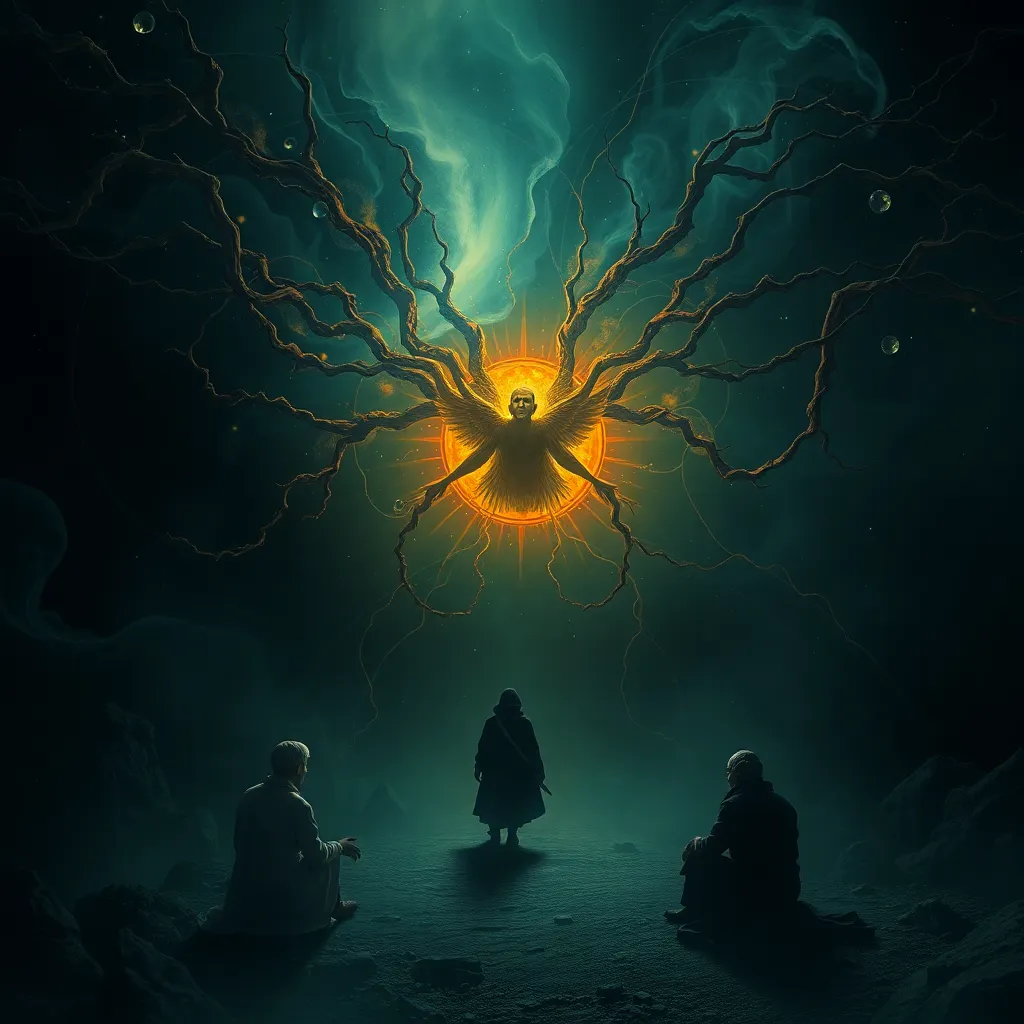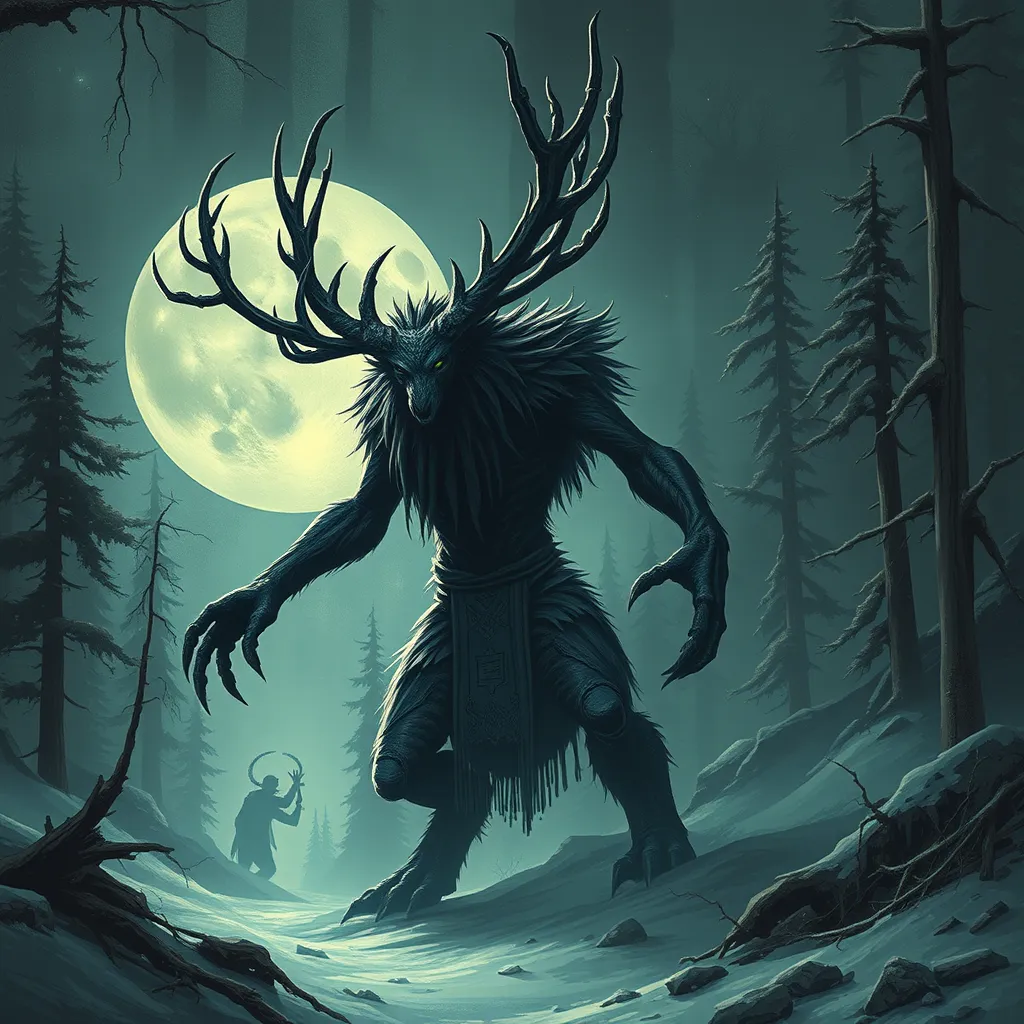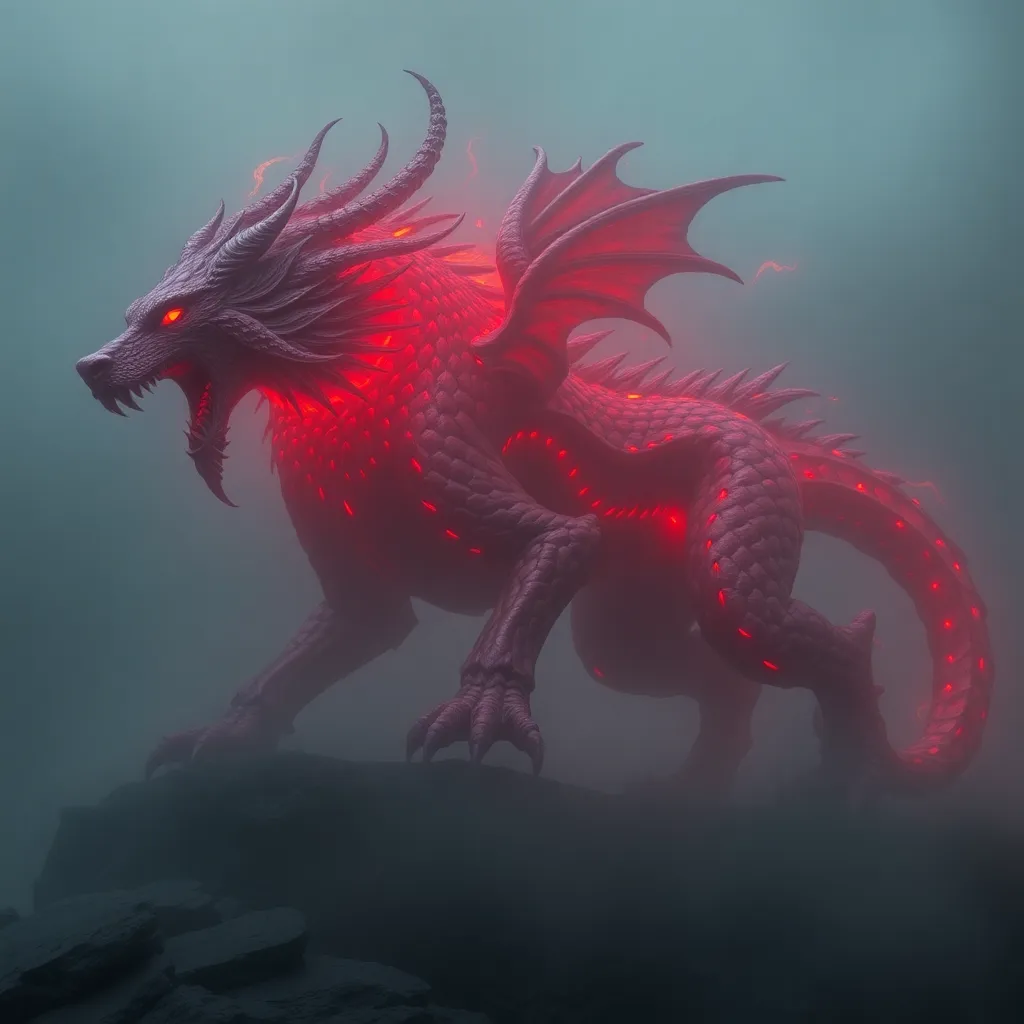The Dybbuk’s Legacy: A Global Exploration of the Spirit’s Enduring Presence
Introduction to the Dybbuk
The Dybbuk, a term derived from the Hebrew word “dibbuk,” meaning “to cling,” refers to a malicious spirit believed to be the dislocated soul of a deceased person, which possesses the living. Its origins can be traced back to Jewish folklore, where it serves as a compelling symbol of unresolved issues and emotional turmoil.
Historically, the Dybbuk has found its place within the rich tapestry of Jewish cultural narratives, representing not only spiritual beliefs but also reflecting the societal struggles of the Jewish people throughout history. This spirit’s significance transcends folklore, influencing literature, theatre, and even modern spiritual practices.
Narrative of the Dybbuk in Jewish Tradition
In Yiddish literature, the Dybbuk is often portrayed as a tragic figure, embodying the pain of lost love and unfulfilled desires. One of the most notable stories is that of the Dybbuk in S. Ansky’s play, where the spirit of a young bride possesses another woman, illustrating themes of love, loss, and the enduring nature of human connections even after death.
- The Dybbuk as a Symbol: It symbolizes unresolved issues, particularly those related to love, grief, and guilt.
- Role in Kabbalah: In Jewish mysticism, particularly Kabbalah, the Dybbuk is often associated with the idea of spiritual imbalance, where a soul is unable to find peace due to its earthly attachments.
The Dybbuk in Theatre and Film
The play “The Dybbuk,” written by S. Ansky in the early 20th century, is a cornerstone of Jewish theatre. It explores deep emotional themes and has been instrumental in bringing the Dybbuk’s narrative to a broader audience. The play illustrates the struggles between the spiritual and physical worlds, highlighting the impact of unresolved relationships on both the living and the dead.
Cinematic adaptations have further expanded the Dybbuk’s reach, allowing for various interpretations that explore the themes of possession and identity. Notable films include:
- The Dybbuk (1937): A classic film that remains faithful to Ansky’s original story.
- Possession (1981): A psychological horror film that draws parallels with the Dybbuk’s themes of duality and possession.
The impact of the Dybbuk on global performing arts and horror genres cannot be overstated, as it has inspired countless adaptations and interpretations across various cultures, highlighting the universal nature of its themes.
Cultural Parallels: Spirits of Possession Worldwide
Across the globe, many cultures have their own narratives of possession by spirits similar to the Dybbuk. For instance:
- La Llorona: In Latin American folklore, this spirit represents the anguish of a mother who has lost her children, paralleling themes of grief and loss.
- Ginny: In Arabian culture, this spirit symbolizes the turmoil of unfulfilled desires and acts of vengeance.
These cross-cultural themes of possession and exorcism illustrate a shared human experience, where individuals grapple with the unresolved emotions of their past. The universal appeal of spirit possession narratives speaks to humanity’s collective fears and desires, bridging cultural gaps and fostering understanding.
The Dybbuk in Modern Spirituality and New Age Movements
In contemporary spirituality, there has been a resurgence of interest in the Dybbuk, as individuals seek to understand the complexities of spirit communication and the nature of the soul. The Dybbuk has found a new home in New Age movements, often viewed through the lens of personal growth and healing.
- Influence on Mediumship: The Dybbuk’s narrative resonates with practices of spirit communication, where individuals attempt to connect with lost loved ones.
- Metaphor for Struggles: Many people interpret the Dybbuk as a metaphor for internal battles, shining a light on issues such as mental health and emotional trauma.
Psychological Interpretations of the Dybbuk
From a psychological perspective, the Dybbuk can be understood as a representation of trauma and grief. The narratives surrounding possession can serve as a means for individuals to process their own unresolved issues and emotional pain.
- Trauma and Grief: The Dybbuk embodies the emotional weight of unprocessed grief, often manifesting in compulsive behaviors and mental anguish.
- Modern Interpretations: Case studies in psychology have explored how narratives of possession can provide insight into the human psyche, offering a framework for understanding personal struggles.
Global Artistic Representations of the Dybbuk
The Dybbuk has inspired a wide array of artistic expressions beyond literature and theatre. Artists across various mediums have explored its themes, resulting in compelling works that resonate with audiences worldwide.
- Visual Arts: Artists have depicted the Dybbuk in paintings and sculptures, often highlighting its haunting nature and emotional depth.
- Music: Composers have created pieces that evoke the spirit’s essence, intertwining traditional Jewish melodies with modern interpretations.
- Contemporary Literature: The Dybbuk continues to influence writers who explore themes of identity, belonging, and the complexities of the human experience.
Conclusion: The Enduring Legacy of the Dybbuk
The Dybbuk’s influence spans across cultures and time, serving as a profound reminder of the human condition. Its enduring legacy lies in its ability to resonate with individuals grappling with love, loss, and the complexities of existence.
In today’s society, the Dybbuk remains relevant, providing a framework for understanding our emotional struggles and the connections that bind us to one another. As we continue to explore the lessons embedded in the Dybbuk’s narrative, we uncover insights that can guide us in our own journeys through life, death, and everything in between.



